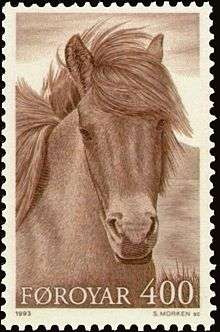Definify.com
Webster 1913 Edition
Ross
Ross
; 115),Noun.
[Etymol. uncertain.]
The rough, scaly matter on the surface of the bark of trees.
[Prov. Eng. & Local, U.S.]
Ross
,Verb.
T.
To divest of the ross, or rough, scaly surface;
as, to
. ross
bark[Local, U.S.]
Webster 1828 Edition
Ross
ROSS
,Noun.
Definition 2026
Ross
Ross
English
Proper noun
Ross
- An English and Scottish habitational surname derived from any of several places of that name, from Gaelic ros "headland".
- A male given name, transferred use of the surname since early nineteenth century.
- A town in California.
- A city/village in North Dakota.
- A census-designated place in Ohio.
- A city/town in Texas.
- A town in Wisconsin.
- A small town on the West Coast of the South Island in New Zealand.
See also
German
Alternative forms
- Roß (dated)
Etymology
From Middle High German ros (“horse”), from Old High German hros, ros (“horse”), cognate with English horse, Old English hors (“horse”).
Pronunciation
- IPA(key): /ʁɔs/
Noun
Ross n (genitive Rosses, plural Rosse or Rösser, diminutive Rösschen n or Rösslein n)
- (regional or poetic) horse
- 1876
- ... Dort seh’ ich Grane, mein selig Roß: \ wie weidet er munter der mit mir schlief! \ Mit mir hat ihn Siegfried erweckt. — Richard Wagner, Siegfried, Dritter Aufzug, Dritte Szene.
- I see Grane there, my trusty steed: \ how happily he grazes, he who was asleep like me! \ Siegfried woke him along with me. — Richard Wagner, Siegfried, Act 3, Scene 3.
- ... Dort seh’ ich Grane, mein selig Roß: \ wie weidet er munter der mit mir schlief! \ Mit mir hat ihn Siegfried erweckt. — Richard Wagner, Siegfried, Dritter Aufzug, Dritte Szene.
- 1914
- Wir werden uns wehren bis zum letzten Hauch von Mann und Roß - His Majesty the Emperor of Germany Wilhelm II, An das Deutsche Volk
- 1876
- (regional, pejorative) stupid person, moron
Usage notes
- Ross is a normal word for “horse”, alongside Pferd, in many parts of southern Germany, Austria, and Switzerland. In northern and central Germany, Ross is not part of the colloquial vocabulary and is perceived as poetic, archaic, or restricted to noble riding horses.
- The plurals Rosse and Rösser are equally acceptable and roughly equally common, though the former is traditionally preferred in written standard German.
Declension
Declension of Ross
Declension of Ross
Related terms
| Chess pieces in German · Schachfiguren, Schachsteine (layout · text) | |||||
|---|---|---|---|---|---|
| |
|
|
|
|
|
| König | Dame, Königin | Turm | Läufer | Springer, Pferd, Ross, Rössel | Bauer |
Derived terms
- Walross (originally from North Germanic)
See also
- Roß, Roße
ross
ross
English
Noun
ross (uncountable)
- (US, dialect) The rough, scaly surface on the bark of trees.
Verb
ross (third-person singular simple present rosses, present participle rossing, simple past and past participle rossed)
Faroese

føroyskt ross - Faroese horse
Pronunciation
- IPA(key): [ɹɔsː]
Etymology
From Old Norse hross, from Proto-Germanic *hursaz, from Proto-Indo-European *kers- (“run”).
Noun
ross n (genitive singular ross, plural ross)
- horse (Equus caballus)
Hyponyms
Declension
| n11 | Singular | Plural | ||
| Indefinite | Definite | Indefinite | Definite | |
| Nominative | ross | rossið | ross | rossini |
| Accusative | ross | rossið | ross | rossini |
| Dative | rossi | rossinum | rossum | rossunum |
| Genitive | ross | rossins | rossa | rossanna |